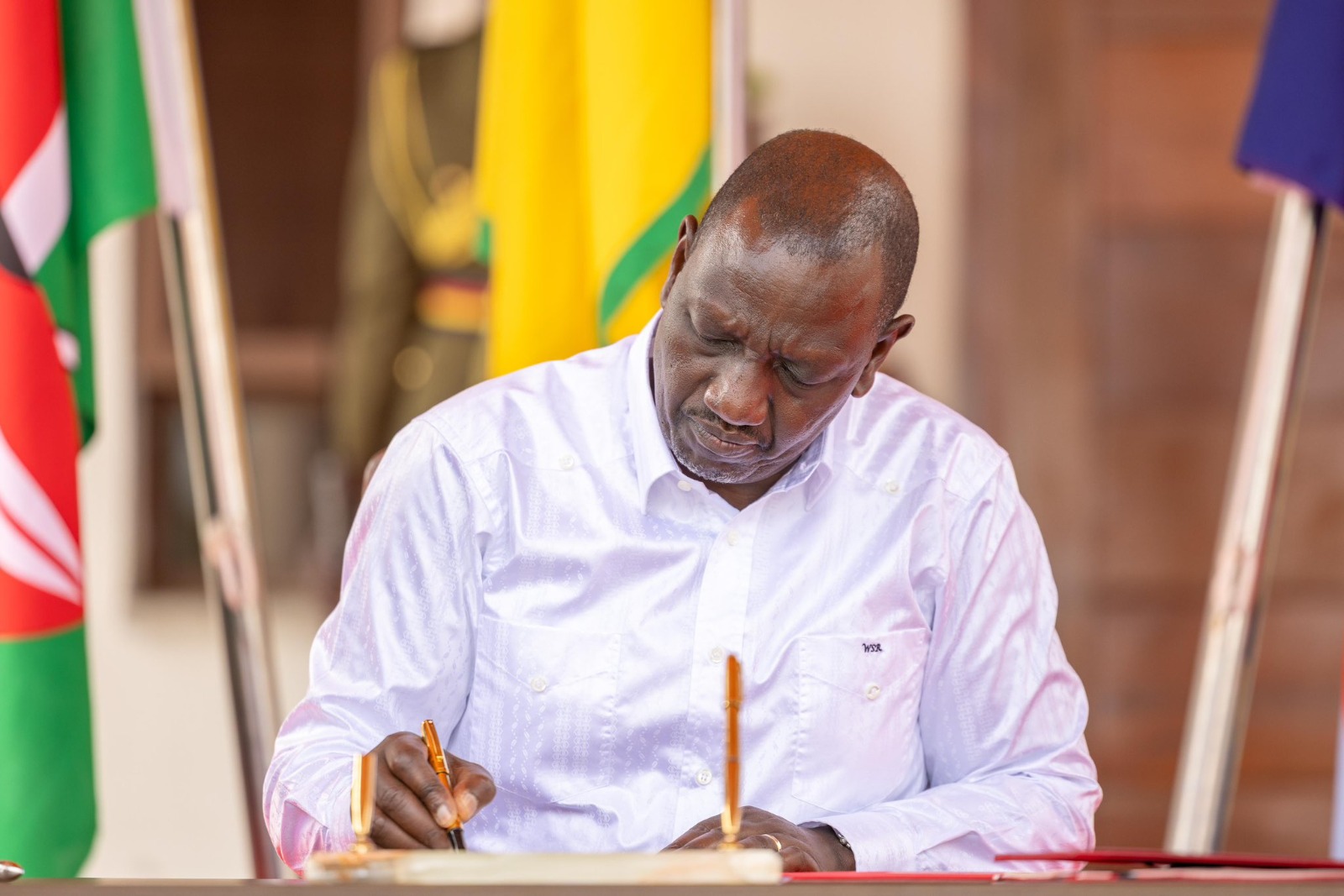Ruto signs new laws to strengthen county financial autonomy and revenue sharing

The two laws are expected to strengthen the way counties manage their funds and receive allocations from the national government
President William Ruto has signed into law two crucial bills aimed at improving county governance and financial autonomy: the County Allocation of Revenue Bill, 2025, and the County Public Finance Laws (Amendment) Bill, 2023.
The two laws are expected to strengthen the way counties manage their funds and receive allocations from the national government.
President Ruto signed the two bills into law at the Homa Bay State Lodge.
The County Public Finance Laws (Amendment) Bill, sponsored by Meru Senator Kathuri Murungi, introduces major changes to the Public Finance Management Act to ensure county assemblies have more control over their finances.
It provides for the creation of a County Assembly Fund in each of the 47 counties, which will handle administrative expenses and help purchase assets such as land and buildings.
Although the County Assembly Services Act already allows for such a fund, this new amendment offers more clarity by outlining how the fund should be managed, where its revenue will come from, and how money will be requested and released.
According to the law, the Clerk of the county assembly will serve as the administrator of the fund.
They will be responsible for making sure the money is held at the Central Bank of Kenya, only used for approved purposes, and disbursed without delay.
If there is any money left at the end of the financial year, it will not be returned to the treasury but instead carried forward to be used later.
The main source of money for the fund will be what each assembly sets aside from the County Revenue Fund. County treasuries must release this money by the 15th of each month to cater for the next month’s expenses, after approval by the assembly.
Supporters of the law say it gives county assemblies better control over their finances, which is necessary for them to carry out their roles under the Constitution.
They also argue that this move reduces overdependence on county executives and allows assemblies to function more independently.
At the same time, Ruto also assented to the County Allocation of Revenue Bill, 2025, which sets out how counties will receive their share of national revenue in the new financial year.
This law, sponsored by Senate Finance and Budget Committee Chair Ali Roba, distributes a total of Sh415 billion among the 47 county governments, a 7.1 percent rise from the Sh387.4 billion allocated in the previous financial year.
This is the first allocation to be guided by the fourth revenue-sharing formula under Article 217 of the Constitution, which Parliament approved earlier this year.
The law also outlines financial rules for national government functions that have been moved back from counties, including quarterly performance reports to the Senate and the relevant county assemblies.
To boost transparency, the National Treasury is now required to publish monthly updates on how much money has actually been sent to the counties.
In turn, county treasuries must include these receipts in their quarterly and yearly financial reports.
The law further introduces spending limits for both county assemblies and county executive arms to ensure better planning and avoid misuse of public funds.
